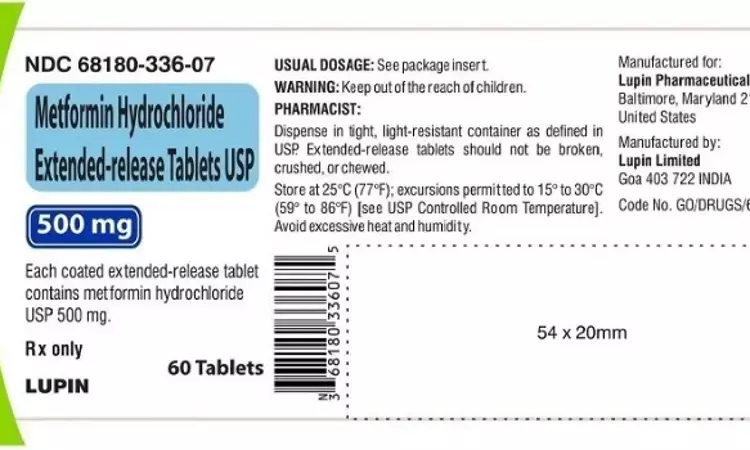- Home
- Medical news & Guidelines
- Anesthesiology
- Cardiology and CTVS
- Critical Care
- Dentistry
- Dermatology
- Diabetes and Endocrinology
- ENT
- Gastroenterology
- Medicine
- Nephrology
- Neurology
- Obstretics-Gynaecology
- Oncology
- Ophthalmology
- Orthopaedics
- Pediatrics-Neonatology
- Psychiatry
- Pulmonology
- Radiology
- Surgery
- Urology
- Laboratory Medicine
- Diet
- Nursing
- Paramedical
- Physiotherapy
- Health news
- Fact Check
- Bone Health Fact Check
- Brain Health Fact Check
- Cancer Related Fact Check
- Child Care Fact Check
- Dental and oral health fact check
- Diabetes and metabolic health fact check
- Diet and Nutrition Fact Check
- Eye and ENT Care Fact Check
- Fitness fact check
- Gut health fact check
- Heart health fact check
- Kidney health fact check
- Medical education fact check
- Men's health fact check
- Respiratory fact check
- Skin and hair care fact check
- Vaccine and Immunization fact check
- Women's health fact check
- AYUSH
- State News
- Andaman and Nicobar Islands
- Andhra Pradesh
- Arunachal Pradesh
- Assam
- Bihar
- Chandigarh
- Chattisgarh
- Dadra and Nagar Haveli
- Daman and Diu
- Delhi
- Goa
- Gujarat
- Haryana
- Himachal Pradesh
- Jammu & Kashmir
- Jharkhand
- Karnataka
- Kerala
- Ladakh
- Lakshadweep
- Madhya Pradesh
- Maharashtra
- Manipur
- Meghalaya
- Mizoram
- Nagaland
- Odisha
- Puducherry
- Punjab
- Rajasthan
- Sikkim
- Tamil Nadu
- Telangana
- Tripura
- Uttar Pradesh
- Uttrakhand
- West Bengal
- Medical Education
- Industry
Metformin first line therapy for diabetes patients at low CVD risk: Meta-analysis

A comparison of glucose-lowering drugs suggests that metformin-based therapy may be a preferred first-line treatment for drug-naive patients with type 2 diabetes at low cardiovascular risk. There is not enough evidence to reach a conclusion about the optimal initial treatment of drug-naive patients at increased cardiovascular risk. Findings from a systematic review and network meta-analysis are published in Annals of Internal Medicine.
Accumulating evidence shows that antidiabetic drug classes and individual agents differ not only in glycemic efficacy but also in their effect on mortality and vascular end points. This means that clinicians must base their treatment decisions on more than glycemic control. They must also consider individual patient characteristics, such as history of atherosclerotic disease, heart failure, or chronic renal disease. A network meta-analysis that presents the most up-to-date and comprehensive evidence map of the pharmacologic treatment of type 2 diabetes and serves as a bridge between the deluge of clinical research and routine clinical practice.
Researchers from Aristotle University of Thessaloniki in Greece reviewed 453 trials assessing 21 antidiabetic interventions from 9 drug classes to compare benefits and harms of glucose-lowering drugs in adults with type 2 diabetes. The design and rationale of the study were informed by patients' input regarding their views and concerns about the management of the type 2 diabetes and its impact on their lives. Interventions included monotherapies, add-on to metformin-based therapies, and monotherapies versus add-on to metformin therapies. Based on the data, the researchers found no differences between treatments in drug-naive patients at low cardiovascular risk. Insulin regimens and specific glucagon-like peptide-1 receptor agonists (GLP-1 RAs) added to metformin-based background therapy produced the greatest reductions in hemoglobin A1c level. For patients at increased cardiovascular risk receiving metformin-based background therapy, specific GLP-1 RAs and sodium–glucose cotransporter-2 (SGLT-2) inhibitors had a favorable effect on certain cardiovascular outcomes.
These conclusions corroborate and build on the latest treatment recommendations of international scientific organizations by documenting the cardiovascular effects of all available antidiabetic medications and by highlighting differences, not only between drug classes, but also between drugs of the same class. Editorialists from the National Institutes of Health discuss the findings and suggest ways that future clinical trials can best inform individualized care for persons with type 2 diabetes.
For further reference log on to:
Dr Kamal Kant Kohli-MBBS, DTCD- a chest specialist with more than 30 years of practice and a flair for writing clinical articles, Dr Kamal Kant Kohli joined Medical Dialogues as a Chief Editor of Medical News. Besides writing articles, as an editor, he proofreads and verifies all the medical content published on Medical Dialogues including those coming from journals, studies,medical conferences,guidelines etc. Email: drkohli@medicaldialogues.in. Contact no. 011-43720751


